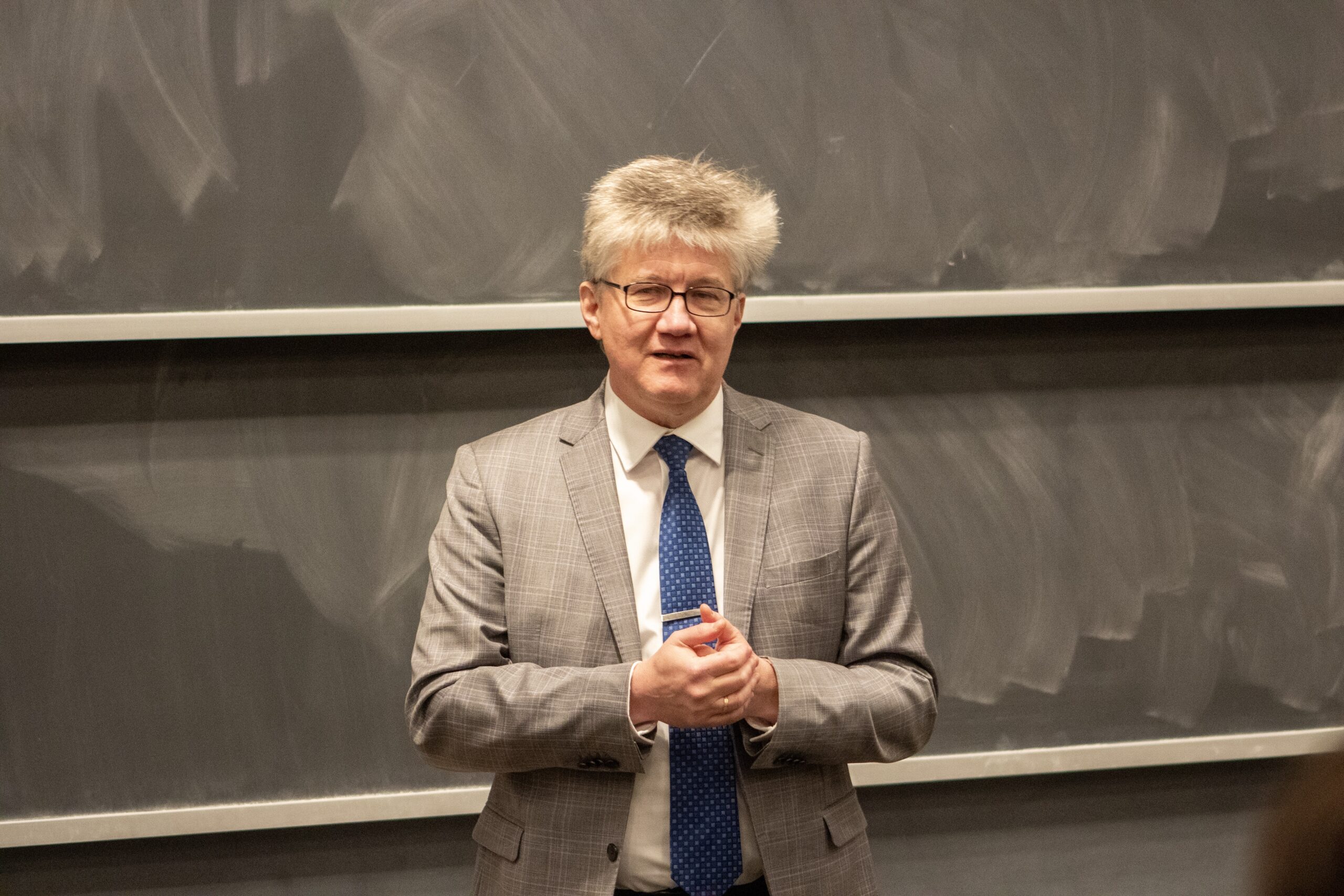Kurilla explains how America and Russia use contrast to create their national identities
December 6, 2024
 Janet Briggs
Janet BriggsOn Tuesday evening in Searles Science Building, Ivan Kurilla, Visiting Tallman Scholar in Russian, East European and Eurasian Studies, delivered a lecture titled, “‘Distant Friends and Intimate Enemies’ What Does the Long History of Russian-American Relations Tell Us About the Present and Future?” His talk explored the long history of Russian and American relations and the role it has played in forming the countries’ national identities.
Kurilla previously taught at European University in St. Petersburg before being terminated for publicly speaking out against Russia’s invasion of Ukraine. Kurilla was also identified along with hundreds of other Russians in a leaked government document listing “potential foreign agents.” Recently, Kurilla also garnered more than four million views in an interview by popular Russian journalist Yury Dud on Youtube about the state of U.S.-Russian relations.
The lecture opened with Kurilla explaining the focus of his research. He highlighted how he studies the influences of American and Russian ideas, ideologies and beliefs in other countries, as opposed to the specific history of diplomacy and geopolitical conflicts between the two nations.
Kurilla then detailed his approach to studying social and political history through the question of identity. The formation of broad nation states extending beyond one town or village means nations need to decide who they are and what defines them as a people. According to Kurilla, the first way of defining this identity comes from history and commonly shared ancestry, myths or heroes. The second way to define a nation’s identity comes from creating a contrast to other nations.
“We are answering the question, who we are, with comparison by answering, ‘We are not them,’” Kurilla said.
As an example, while Americans typically answer the question of identity by recalling a shared history and the lineage of the constitution, Kurilla explained, Canadians commonly define themselves as not American.
Throughout the course of Russian and American history, while both nations highlight past heroes and myths as one source of national identity, they periodically also define themselves in terms of their opposition to each other.
“Defending who you are against is a way to build our own identity in the history of Russia and in the history of the United States. America for Russians and Russia for Americans [plays] a very important role in this way of constructing the way Americans and Russians think of themself,” Kurilla said. “Politicians in the past, and less frequently now, use Russia as a synonymous word [for] un-American. There are probably millions of examples when American politicians would say, for example, that we are here in America; we are not Russia.”
Americans defined themself in contrast to Russian, because, according to Kurilla, America stood as a democratic free nation which believed in God, in comparison to Russia’s atheistic dictatorship.
“Americans said, ‘We are not Russia. Russia is a dictatorship, Russia is atheistic. We are devoted church-goers, and we believe in God; in God we trust. And that is a description of [Americans] in contrast to others,” Kurilla said.
Kurilla then looked at how, on the opposing side, Russia viewed American ideas of equality and liberty as a threat to the elites and existing order, whether it be the tsars, the Soviet premiers or Putin.
“Usually Russian conservative authorities see danger in the American model, exactly because Russian radicals turn to the American example as an inspiration for their own projects to reform, to change Russia. Russian conservative tsars, and then also general secretaries, or maybe even Putin right now, saw the danger in America,” said Kurilla.
Kurilla also highlighted a contemporary example, explaining that in 2016, Donald Trump was characterized as being un-American, because he was viewed as a Russian agent. As Kurilla explained, the “Russian agent” aspect provided a venue for critics to accuse Trump of being un-American.
Attendee Volodymyr Zadorojny ’27, who is in a class Kurilla teaches this semester, remarked on the importance of understanding the relationship between America and Russia.
“It’s an incredibly important topic to our lives as students. It’s something that’s coming up in our future. A lot of us could be the ones making decisions on these topics when we grow up,” Zadorojny said.
Zadorojny appreciated that Kurilla gave him a better understanding of how America and Russia each use the other as a foil to highlight the strengths of their own nation.
“America describes itself as this sort of glorious, flags billowing in the wind, free, entrepreneurial nation, where we make money and get rich, versus the autocratic, despotic monarchs or then general secretaries of the USSR, and whenever something repressive was done, it would be described as typical Russia,” Zadorojny said. “While in Russia, if anything [was] radical and crazy and wacky, it was described … as stupid, backwards, racist America.”

Comments
Before submitting a comment, please review our comment policy. Some key points from the policy: